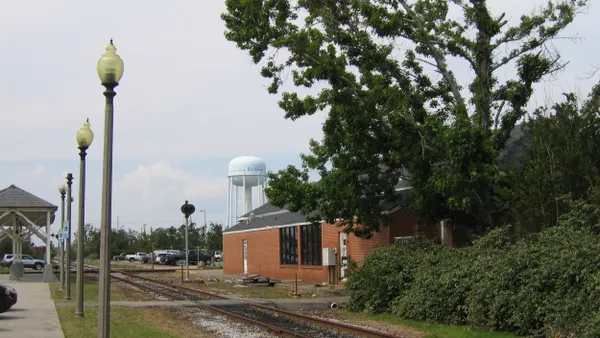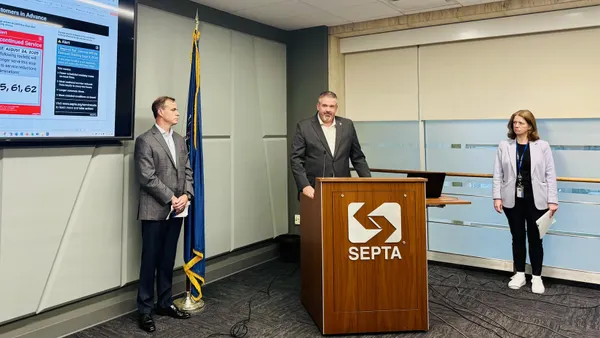One of the largest cities in the world just launched a pilot to test the sustainability of micromobility. London, one of the last major city holdouts, finally embarked on a scooter pilot, but only after a well thought-out and thorough preparation and planning period.
The Dive (launch):
On June 7, 2021, London took the plunge into the world of micromobility scooter pilots, making e-scooters available to rent in the participating London boroughs. Transport for London (TfL) stated "We're running the trial with London Councils and the participating London boroughs, plus Canary Wharf. Working together on a single trial means the trial can run consistently across participating boroughs, with safety at its core". The trial initially covered a core area including Ealing, Hammersmith & Fulham, Kensington & Chelsea, Richmond, Tower Hamlets and Canary Wharf. On 5 July, the City of London, Lambeth and Southwark joined the trial. The expansion of the trial with Westminster means that e-scooters can be hired and used in a wider area of central and inner London. TfL and London Councils are continuing discussions with boroughs about further expansion over the coming months.
How vendors were selected and who they are:
A thorough RFP process to select scooter companies culminated with Lime, Tier, and Dott being selected to operate in London's first scooter pilot. The companies were chosen based on very strict qualification standards and the ability to demonstrate key safety measures. Will Norman, London's Walking & Cycling Commissioner stated, "This trial has safety at its heart, bringing in rigorous precautions and parking measures while taking the needs of all road users into account and seeing what role e-scooters can play in London's future."
Top of mind for TfL – Safety and Policy Creation:
According to Mayor Philip Glanville, Chair of London Councils' Transport and Environment Committee, and the press release from TfL;
"Safety remains the top priority for the trial. We will be looking closely at data and insights as the trial continues to grow to determine whether e-scooters are a viable part of a greener and healthier future for London. Vitally, the trial is shaped by the boroughs and aims to support London's diverse local communities by being inclusive of the travel needs of all Londoners, especially those on lower incomes."
Notably, data shared by the operators will play a vital role in helping to shape TfL"s future policy on e-scooters and will include anonymized trip details, safety and incident reporting, and environment and sustainability metrics. TfL chose Blue Systems to provide a micro-mobility data-sharing platform that allows for two-way data sharing with the operators and helps with the day-to-day management of the program. In fact, TfL was one of the first authorities to implement the Mobility Data Specification (MDS) Policy API, first released in October 2019. It allows TfL to communicate its transportation policies to e-scooter operators in real-time responding to the constantly evolving urban mobility environment.
TfL chooses Blue Systems as its dive partner:
Much like the final dive at the Tokyo Summer Olympics in the 10-meter platform competition, Tom Daley and Matty Lee, the duo from Great Britain needed to be in complete harmony; Tfl needed a partner with whom they could work in tandem to aggregate and visualize data to analyze and evaluate the e-scooter pilot. After an extensive evaluation process, TfL chose Blue Systems to provide their Mobility Manager Platform for this ambitious scooter pilot. Nicolas Tremblay, in charge of Blue Systems' European markets, stated, "We could not be prouder of our partnership with TfL. We understand the complex environment in London and the goals that TfL has for this pilot. We have a robust team dedicated to supporting the program and we look forward to playing a key role in helping the city prepare for the future expansion of scooter service across the City."
When asked what makes Blue Systems uniquely qualified to provide a data analytics platform for such a complex and ambitious pilot, Blue Systems CEO Christophe Arnaud stated, "We have spent the last several years working with the most innovative cities on mobility data analytics utilizing MDS APIs and fine-tuning our platform so that our city customers take advantage of the most robust dashboard on the market. The most important thing we do every day at Blue Systems is work collaboratively with city officials to ensure they have the tools they need to manage their mobility programs."
Time will tell if Tfl, the scooter operators and Blue Systems can pull off a gold medal performance, but by the looks of things, everyone is off to a great start.
Horizon for Blue Systems:
This wasn't the first time Blue Systems has dived deeply into mobility management with a city partner. Operating in major cities in both Europe and the US, the company helps cities not only gain an understanding of what's happening on their streets but also regulate mobility to achieve their goals (i.e., reduce traffic, achieve better air quality, ensure equitable distribution of mobility options, etc.). And it's not just e-scooters, but also bikes, mopeds, delivery robots, buses, drones, carshare, and soon-to-be taxis.
Data at a glance:
Initial data suggests, thus far the pilot has been very popular amongst the London boroughs participating in the pilot scheme. Breaking down the numbers:
Total Vehicles 4,500
Total Rides 850,000
Bike Rides 700,000
Scooter Rides 150,000
Average Weekly Rides 80,000
Average Ride Distance 2 – 3 kilometers










